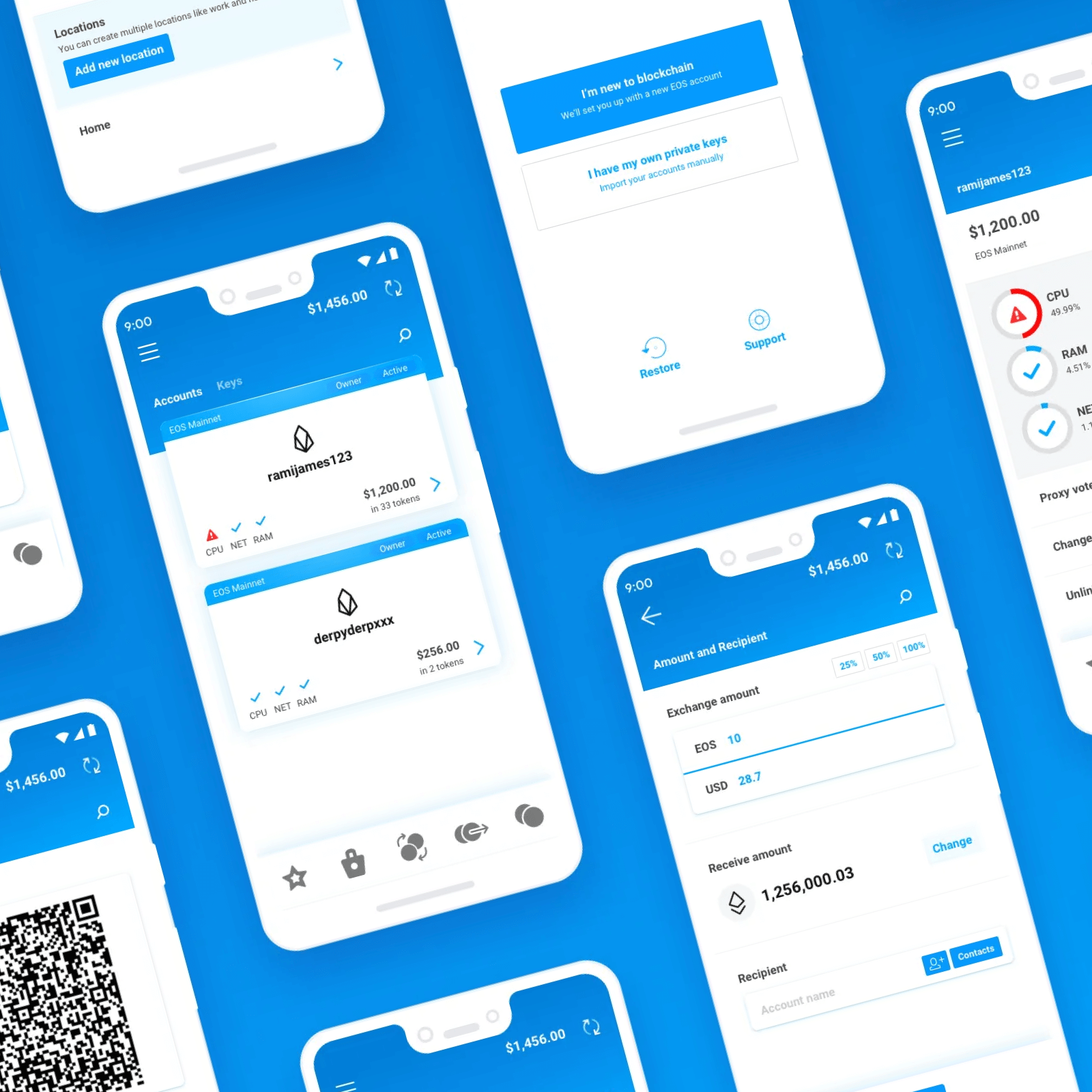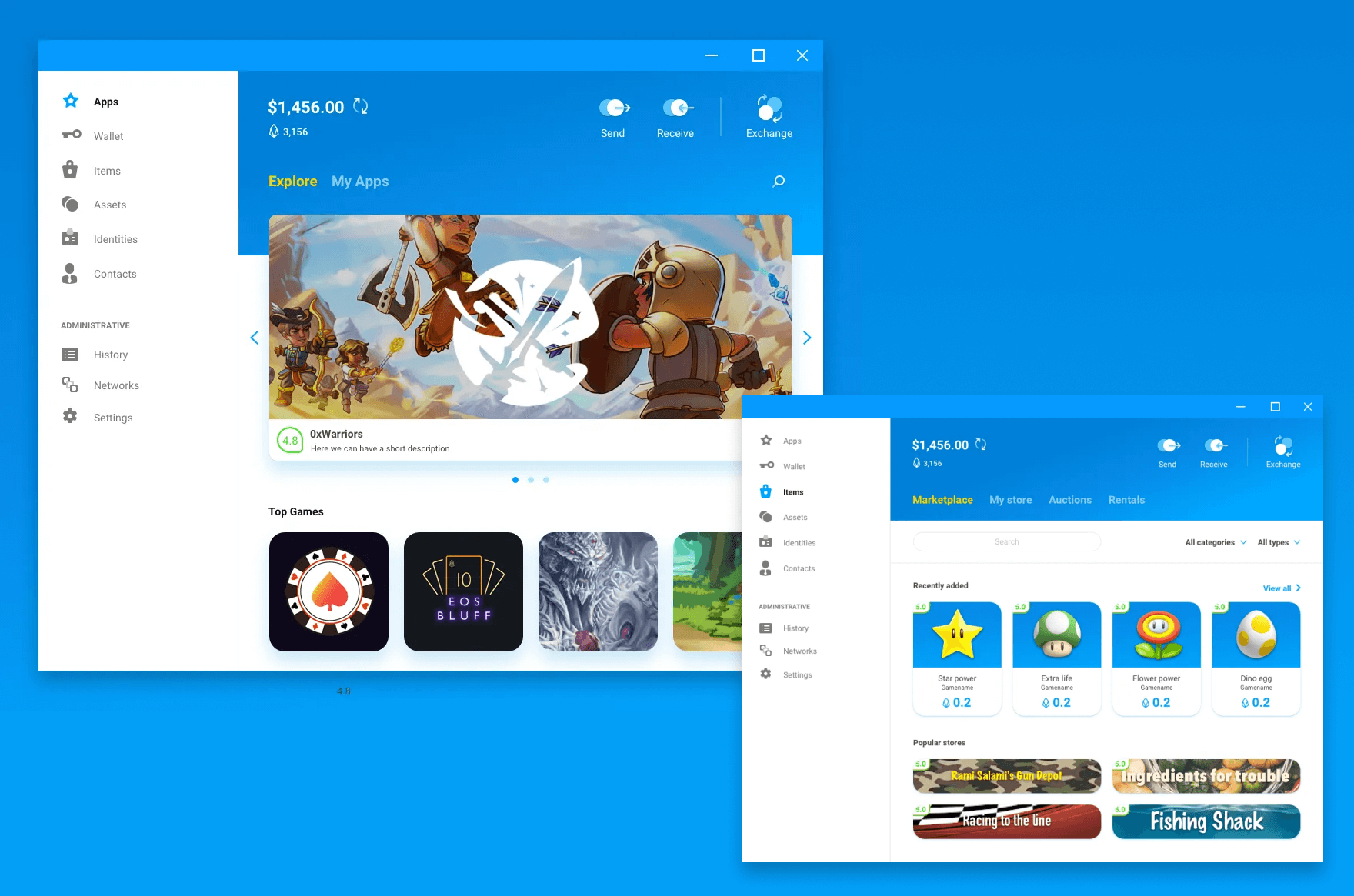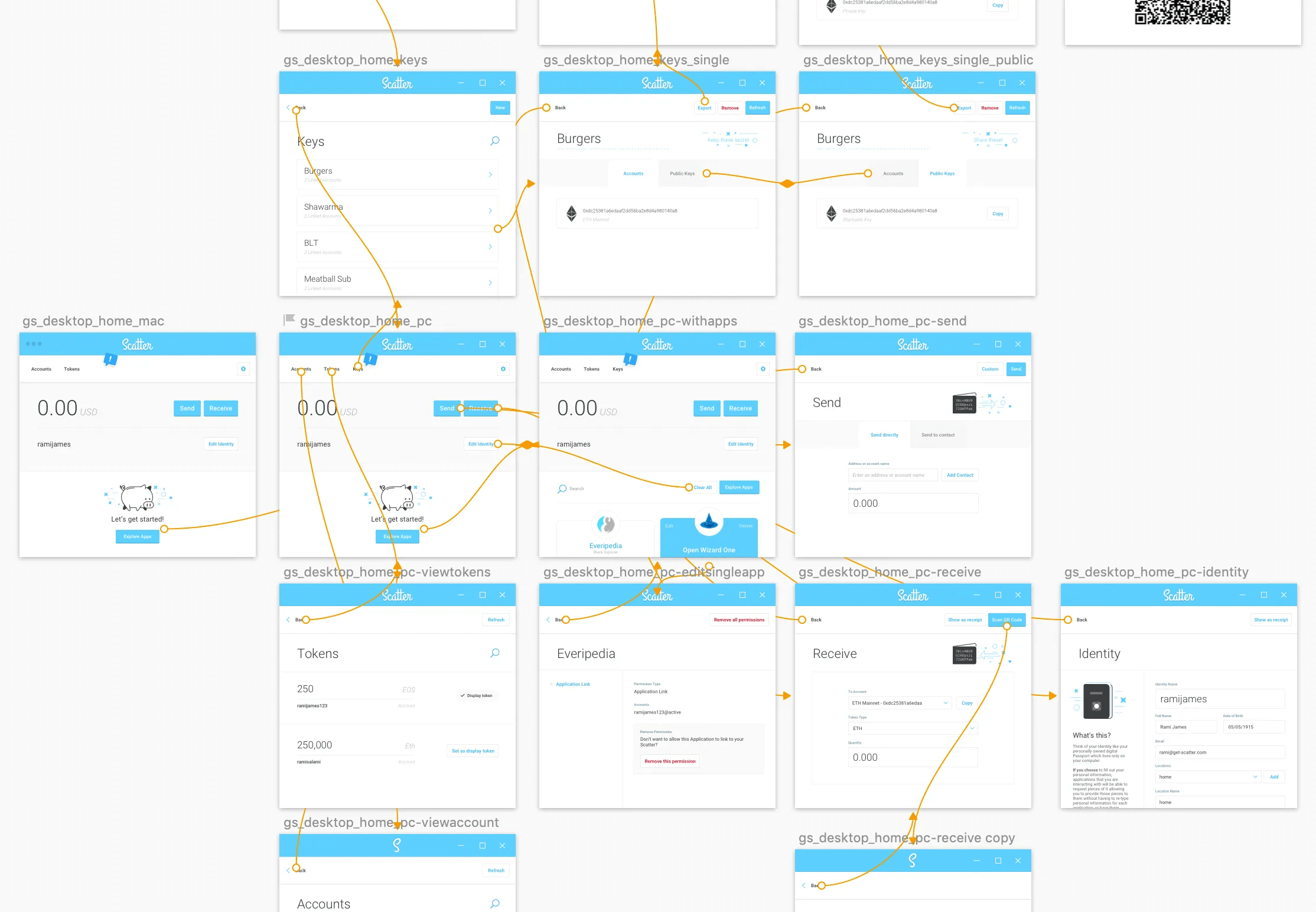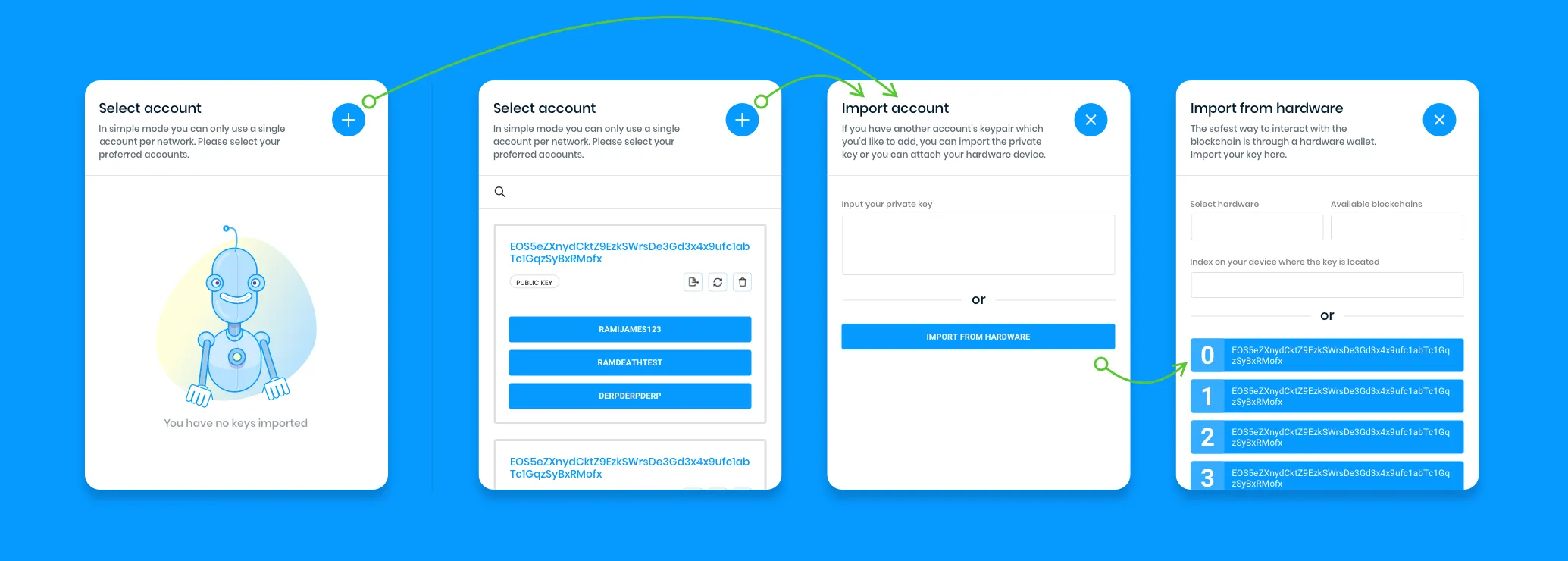
Scatter
About Scatter and my work there
Scatter was started in 2017 by Nathan James as a way for the EOSIO community to launch its Mainnet. I joined shortly after both as Head of Product and the COO. As with most startups, we all had to wear many hats.
Scatter was a digital identity and wallet that allowed users to interact with the EOS blockchain. At first, it was simply a browser extension that allowed users to sign transactions and interact with apps in a secure way. Quickly the vision of the product evolved from a signing extension into a digital hub for EOS users to manage their signing keys, their digital identity, and the apps that they would find most useful.
The first standalone application launched in 2018, and was based on the Vue.js stack embedded in an Electron app. Throughout 2018 and 2019, we iterated through many versions of the interface with the intense feedback of the quickly growing community of users. At our peak, we had around 150-200K DAU.
A large part of my work at Scatter was directly interfacing with the community of retail users and developers to understand their needs and translate that back into our product cycle. We produced a large number of developer-focused articles and other peripheral content which helped on-board them into our ecosystem.


Challenges
The utterly complex nature of the EOS blockchain was often a stumbling block for users, and it became our core challenge to simplify the user experience while still allowing users to interact with the blockchain in a secure way. We had to balance the needs of the power users with the needs of the new users, and it was a constant dance to keep everyone happy. I spent a lot of time tweaking and inventing new interfaces which, for example, made things like on-boarding new users straightforward and understandable.


Product Suite
As our vision grew, we ended up working on a wide variety of products, including:
- Scatter Desktop - Our desktop, Electron-based signing wallet.
- Scatter Mobile - Our mobile native signing wallet, unreleased.
- Scatter JS - The developer-facing signing library used for integration with our wallet.
- Scatter Marketplace - The prototype digital products marketplace released in 2019.
- Scatter Identity (RIDL) - The digital identity network and extension for providing anonymous, verifiable identities on web3.
We were constantly evolving the product, and it dramatically improved over the two years that we worked on it. It was a lot to manage, and we were always looking for ways to simplify our product offering while still providing value to our users.

Post-mortem
Scatter was a wild ride, and I learned a lot about managing teams, building products in a fast-paced market, and the challenges of building something that is used by a lot of people. I'm proud of the work that we did. I'm also deeply saddened that we failed to break out into the wider web3 ecosystems, and ultimately that we had to close things down. I learned much of what I know today by building this startup.
We shuttered operations in early 2020, and our team largely moved to Ultra, where we continued to build great things together.